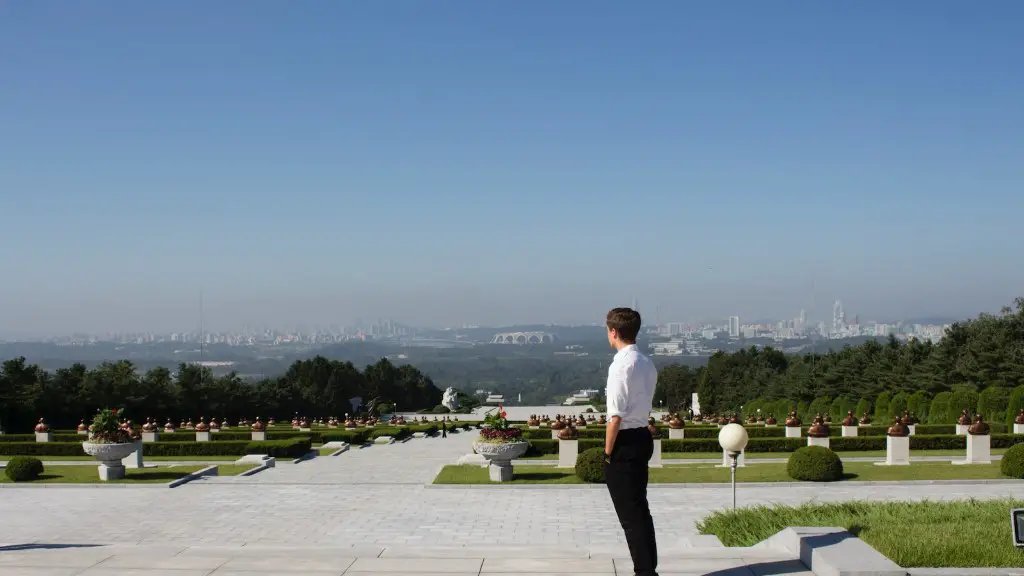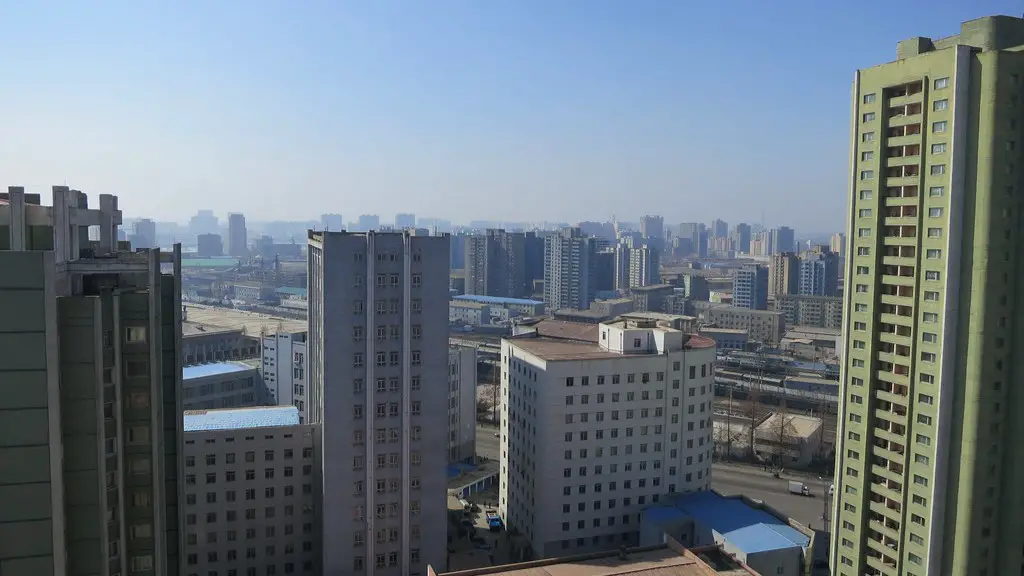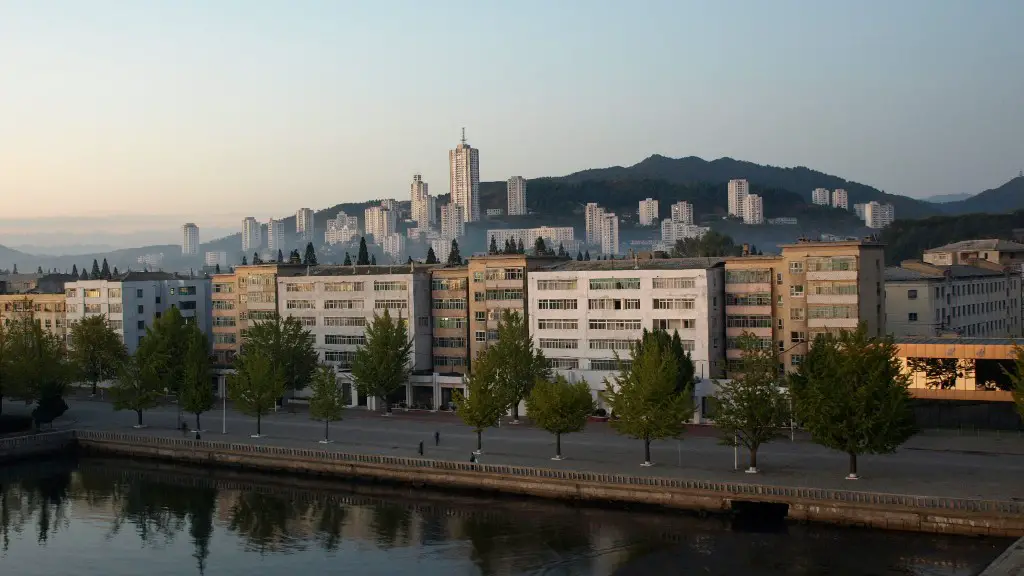History of North Korea
North Korea is a reclusive nation, one of the most censored and restricted countries in the world. It has a long history of hostile relations with the West and has remained largely closed off to the outside world for decades. But why is North Korea so restricted, and what effect does this have on its citizens?
To understand why North Korea is so restricted, it is important to examine the history of the nation. North Korea was established after the Second World War, when the Korean peninsula was divided between the Soviet-backed North and the US-backed South. Since then, North Korea has been led by the Kim family, the first leader being Kim Il-sung, and the current leader being his grandson Kim Jong-un. The ruling Kim family has maintained a tight grip on power, suppressing dissent, controlling information, and isolating the nation from the rest of the world.
The rule of the Kim family has been oppressive. Political opponents have been detained and tortured, while human rights abuses and censorship of media are commonplace. North Korea has also engaged in provocative acts, such as the testing of nuclear weapons, the kidnapping of Japanese citizens, and the alleged cyber-attack on Sony Pictures. As a result, the United Nations has imposed heavy sanctions on the country, which further restricts access to the outside world.
These restrictions have a major impact on the lives of the citizens of North Korea. Access to the internet is heavily restricted, with only a small number of elites having access to the world-wide web. The country’s media is strictly controlled, with news being heavily censored. Travel between North Korea and the rest of the world is also limited, with citizens rarely being given permission to leave the country.
In addition to this, North Korea’s economy is poorly developed, with most citizens living in poverty. The country has struggled to provide adequate food and healthcare, leading to a high infant mortality rate and life expectancy being some of the lowest in the world. The restrictions have left citizens unable to access clean water, electricity, or proper sanitation.
Despite the restrictions it is clear that there is a recent push for change in North Korea under Kim Jong-un. This can be seen through the loosening of some restrictions, such as the improving of internet access for state-sanctioned sites, and the development of special economic zones for foreign investment. But these changes still pale in comparison to the widespread, oppressive restrictions that the nation’s citizens face.
Impact Of Sanctions On People Of North Korea
The UN sanctions imposed on North Korea are intended to limit the country’s ability to produce and deploy weapons of mass destruction. But the consequences of these sanctions extend well beyond the military realm and have had a profound effect on the lives of the people of North Korea.
The sanctions have limited the ability of North Korean citizens to access the outside world. They have also made it difficult for North Koreans to travel abroad. This has severely limited opportunities for education, trade, and investment, depressing the already low standard of living.
The sanctions have had a particularly devastating effect on the healthcare system of North Korea. A lack of access to medicines and medical equipment has led to serious health issues, such as malnutrition and high infant mortality rates. In addition, many North Koreans have faced psychological distress due to the isolation and deprivation they face.
The UN sanctions have also had a major impact on the country’s economy. The importation of goods is limited, making it difficult for citizens to access basic necessities. This has had a ripple effect, leading to higher prices for goods and pushing many citizens further into poverty.
Overall, the UN sanctions have had a negative effect on the people of North Korea. While these sanctions may have had the intended effect of limiting the nation’s ability to produce weapons of mass destruction, they have also restricted the access to food, medicine, and technology, leading to deprivation and suffering among civilians.
What Is Being Done To Help The People Of North Korea?
Given the harshness of life in North Korea, there have been attempts to provide for those in need. One of the most prominent efforts is the work of international aid organizations, such as the Red Cross and Unicef, which have provided humanitarian assistance for many years.
These organizations have provided food, clothing, and medical supplies to those in need. They have also provided educational opportunities and programs aimed at improving human rights in the country. They have also set up radio stations and websites to promote a greater understanding of the world beyond North Korea’s borders.
In addition to international aid organizations, there have also been efforts from individuals and private groups to help North Korean citizens. Several Christian charities have operated in the country, providing resources and support to those in need. There have also been private citizens who have sought to provide food and medical aid to North Korea, often risking legal repercussions in the process.
The efforts of these international aid organizations and individuals have improved the lives of many in North Korea, and have helped to raise awareness of the issue. But much more needs to be done before the rights and freedoms of the citizens of North Korea are fully realized.
What Is The International Community Doing To Help?
The international community has recently taken a more active role in trying to improve the situation in North Korea. In 2018, the United Nations held a special session on the human rights situation in the country, calling for the government to end its abuse of its citizens. This was followed by several UN member states imposing further sanctions on the country.
More recently, the UN Human Rights Council has set up a special commission to investigate the situation in North Korea. This is the first time a UN body has taken such active measures to investigate the country, and will hopefully shed light on the abuses taking place.
Despite these positive steps, international efforts have focused mostly on government-to-government interactions, while overlooking the needs of ordinary North Koreans. In order to have a meaningful impact, the international community must shift its focus to direct, grassroots initiatives that focus on improving the lives of North Korean citizens.
What Can Be Done In The Future?
It is clear that the restrictions imposed on the people of North Korea have taken a toll on the nation. But there are steps that can be taken to improve the situation. For starters, the international community should place greater emphasis on providing direct, grassroots aid to the citizens of North Korea. This could include providing food, medical aid, and educational opportunities.
International pressure should also be brought to bear on the country’s leaders. Nations around the world should make a concerted effort to push for greater freedom of expression and human rights. They should also join forces to impose sanctions on North Korea and put pressure on the nation’s leaders to comply with international law.
Finally, greater cooperation between North and South Korea would help to improve the situation in the region. Plans for joint economic projects and increased cultural exchanges should be promoted, and North Koreans should be given more freedom to travel between the two nations.
Are There Signs Of Hope?
Despite the ongoing restrictions and continued suffering of the North Korean people, there are signs of hope. In recent years, North Korea has taken steps to improve its relations with the outside world. This has included the summit held between Kim Jong-un and US President Trump, as well as an agreement to denuclearize the Korean peninsula.
There are also signs that the North Korean people are starting to push for change, evidenced by the increasing number of defectors making their way to South Korea and other countries. This indicates that more and more North Koreans are willing to challenge the oppressive regime and seek out a better life.
As long as the international community continues to pressure North Korea and provide grassroots initiatives to help the North Korean people, there is a chance for improvement. With the right efforts, we can help bring freedom and opportunity to North Koreans and help them build a brighter future.





